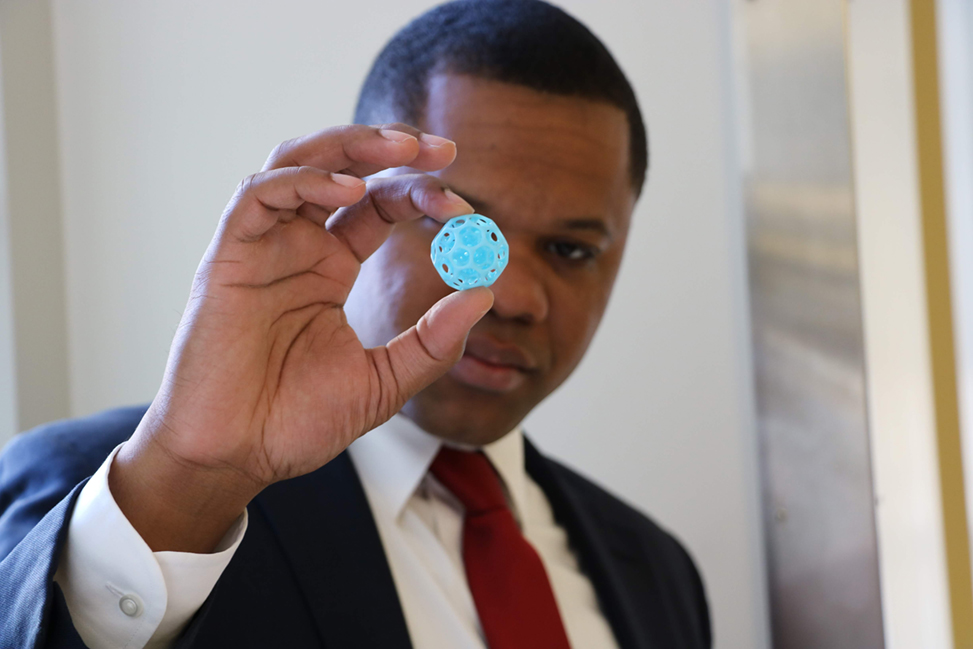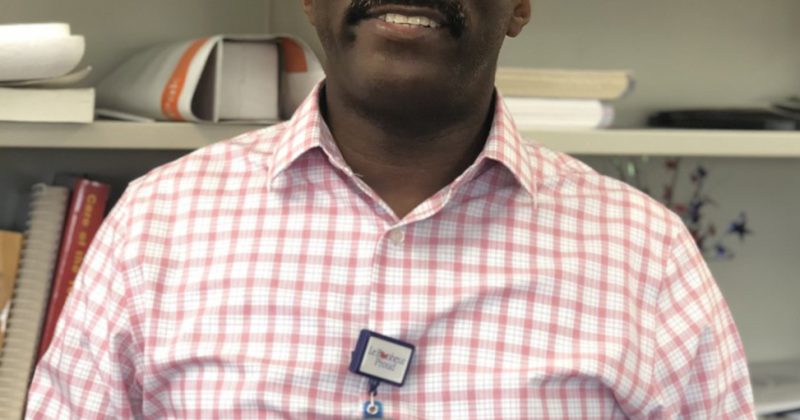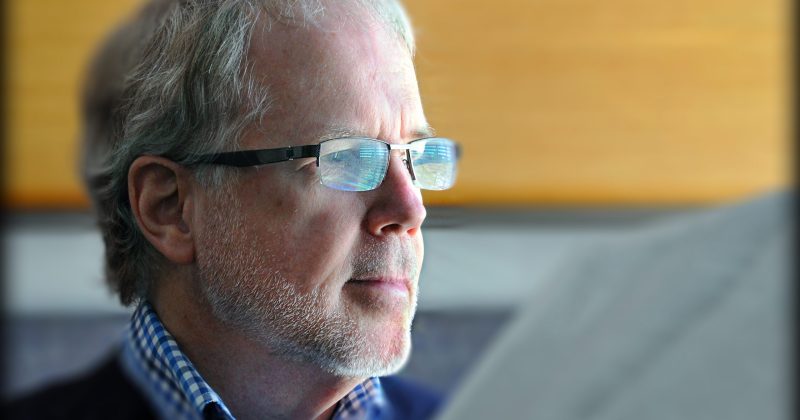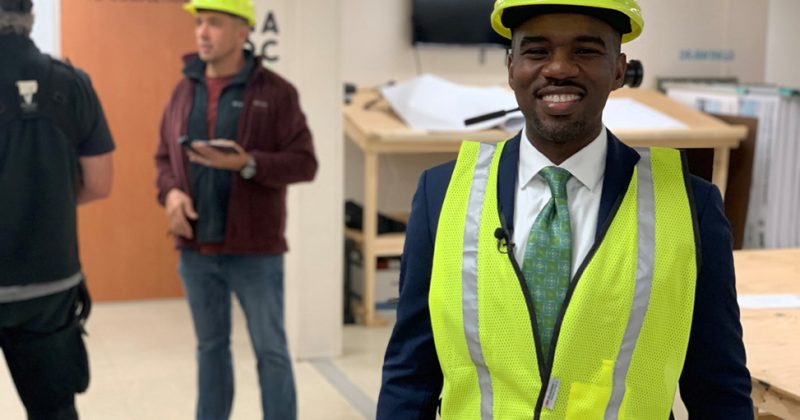
Richard Watkins, holding a 3D printing sample, says Chancellor’s Science Scholars teaches talented young scientists how to apply their skills to solving society’s problems. (photo by Ann Taylor Shaw)
Richard Watkins, program coordinator for Chancellor’s Science Scholars (CSS), shares how UNC helped shape his career path and why he invests in the next generation of STEM talent. Watkins earned his Ph.D. in microbiology and immunology, with a specialty in virology, in 2014 from Carolina.
CSS supports exceptional STEM students from every background through merit-based scholarships, cutting-edge research opportunities and intensive mentoring.
Q: What inspired your love of science?
A: I actually started college at Fayetteville State University as a business major because that was the popular thing. Then I took a psychology course and decided I’d be better off doing something I’m interested in. Trying to understand the way people think and behave fascinates me. I got to present some neuroscience research at the Annual Biomedical Research Conference for Minority Students, and it was so much fun — almost like a scientific spring break trip. That was when I first saw science as a much larger community and a field where I could really make an impact.
Q: What did your path to graduate school look like?
A: During college, I got to know some faculty who encouraged me to pursue graduate school. I was interested in studying HIV, so I started applying to virology and immunology programs. I didn’t have much luck at first, but someone connected me with Dr. Patricia Phelps, who was in the early stages of developing what would become the UNC Postbaccalaureate Research Education Program (UNC PREP). I spent a year in the program studying cystic fibrosis before entering Carolina’s Ph.D. program. The UNC PREP Program is still helping students prepare for success in top biomedical graduate programs.
Q: How did you get involved with science policy?
A: Research has an impact beyond the bench, and I wanted to be part of that greater scientific enterprise. In grad school, I learned about a whole new world called science policy, and I helped develop a student organization called the Science Policy Advocacy Group to give students the opportunity to learn and appreciate how science affects policy and how policy affects science.
Q: How did you create the Science Policy Action Network (SPAN)?
A: The general idea was to expand the student organization into a nonprofit, and a lot of credit goes to UNC’s entrepreneurial environment. I got input from the Campus Y; I was sending business proposals over to Kenan-Flagler Business School for feedback; we were invited to a big pitching event at the Blue Zone; and I had a great mentor who taught me how to put together a board of directors.
Q: What type of work does SPAN do?
A: SPAN is staffed almost entirely by volunteers, and every aspect of our work is centered on science policy in North Carolina. Our research arm gives volunteers a chance to tackle timely projects, like an analysis of climate change policy. We also offer consulting and work with the community to address a variety of issues. Our high school internship program helps develop the talent pool for college STEM programs like CSS.
Q: Why are programs like Chancellor’s Science Scholars so vital?
A: My ultimate goal is to improve, extend and save lives, and the only way to do that is to have talent at all levels of science. The talent of these future scientists is nurtured in programs like CSS, which connect them with opportunities they would not have had otherwise and teach them how to apply their talents to the problems we face as a society. Anything is possible, and everything is possible. Your only limitation is your own imagination.
Interview by Ann Taylor Shaw
Published in the Fall 2020 issue | The Scoop
Read More

Summer Bridge helped a pediatrician get a solid start at Carolina
Leon Livingston ’91, a pediatrician in Memphis, Tennessee, credits a…

A cyclic history
Election fraud. Gerrymandering. Disinformation campaigns. Voter suppression. A public…


